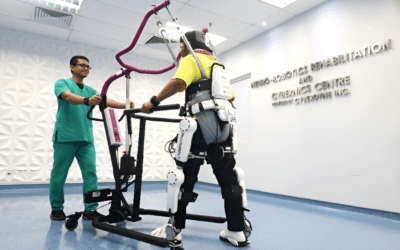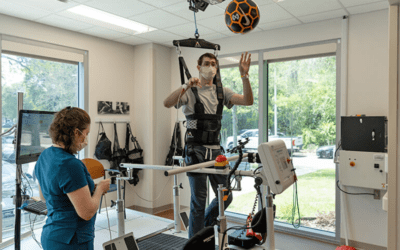Childhood trauma can significantly alter brain pathways, impacting emotional regulation, stress response, and cognitive function. Early adverse experiences may lead to heightened sensitivity in the amygdala, increasing anxiety and fear responses. Additionally, trauma can disrupt the development of the prefrontal cortex, impairing decision-making and impulse control. These changes can result in long-term effects on mental health, behavior, and overall well-being.

The Effects of Childhood Trauma on Neural Development
Trauma can significantly alter brain pathways, impacting emotional regulation, cognitive functions, and overall mental health.
Here are some key ways trauma affects brain pathways:
Amygdala Hyperactivity
- Trauma can cause the amygdala, the brain’s fear center, to become hyperactive. This heightened response increases anxiety, fear, and hypervigilance, making individuals more sensitive to perceived threats.
Prefrontal Cortex Dysfunction
- The prefrontal cortex, responsible for decision-making, impulse control, and emotional regulation, may become less active following trauma. This dysfunction can lead to difficulties in managing emotions and increased impulsivity.
Hippocampal Changes
- Trauma can negatively affect the hippocampus, which is crucial for memory formation and contextualizing experiences. This can result in memory problems, flashbacks, and challenges in distinguishing between past and present threats.
Neurotransmitter Disruption from Childhood Trauma
- Traumatic experiences can disrupt the balance of neurotransmitters, such as serotonin and dopamine, affecting mood regulation and increasing the risk of depression and anxiety disorders.
Neuroplasticity and Pathway Rewiring
- While trauma can have detrimental effects, the brain’s neuroplasticity allows for potential rewiring. Therapeutic interventions can promote healing and help establish healthier neural connections.
Impact of Childhood Trauma on the Stress Response System
- Trauma can lead to dysregulation of the hypothalamic-pituitary-adrenal (HPA) axis, which governs the stress response. This dysregulation can result in chronic stress, impacting various bodily systems and overall health.
Understanding how trauma alters brain pathways is essential for developing effective therapeutic interventions. By addressing these changes through targeted treatments, individuals can work toward healing and improving their mental health and well-being.
Alterations in Brain Pathways:
Disruption of Brain Development
Trauma, particularly during critical developmental periods in childhood, can disrupt normal brain development. This can result in underdeveloped or overactive regions associated with emotional regulation, memory, and impulse control. Such disruptions may lead to lifelong challenges in social interactions, academic performance, and emotional stability.
Hyperactivation of Stress Response
Traumatic experiences can lead to Hyperactivation of the body’s stress response systems, particularly the hypothalamic-pituitary-adrenal (HPA) axis. This overactivity can result in chronic stress levels, contributing to anxiety, depression, and various physical health issues. Individuals may become hyper-vigilant, experiencing heightened anxiety and a constant sense of threat.
Alterations in Emotional Processing
Trauma can significantly alter how individuals process emotions. The amygdala, responsible for fear responses, may become overactive, while the prefrontal cortex, which regulates emotional responses, may become less effective. This imbalance can lead to difficulty managing emotions, increased irritability, and challenges in forming healthy relationships.
Changes in Connectivity Between Brain Regions
Trauma can disrupt the connectivity between various brain regions, affecting how they communicate with one another. For instance, altered connectivity between the amygdala and prefrontal cortex can impair emotional regulation and decision-making. These changes can hinder an individual’s ability to respond appropriately to stressors and can contribute to symptoms of PTSD and other mood disorders.
Structural Changes in the Brain
Research has shown that trauma can lead to structural changes in the brain, including reductions in the size of the hippocampus and changes in the amygdala volume. Such structural alterations can impact memory, learning, and emotional regulation, further complicating recovery from traumatic experiences. Over time, these changes may contribute to the development of various psychological disorders.
Understanding these mechanisms is crucial for developing effective interventions and therapies aimed at supporting individuals who have experienced trauma. By addressing the disruption in brain development, stress response, emotional processing, connectivity, and structural integrity, clinicians can better support recovery and promote mental well-being.
Major Consequences of Childhood Trauma on Neural Networks
Trauma can have far-reaching consequences that impact various aspects of an individual’s life, both in the short and long term.

Here are some key consequences:
1. Mental Health Disorders
Trauma is often linked to a range of mental health conditions, including Post-Traumatic Stress Disorder (PTSD), anxiety disorders, depression, and substance abuse. Individuals may experience flashbacks, heightened anxiety, and mood swings.
2. Cognitive Impairments Associated with Childhood Trauma
Trauma can affect cognitive functions such as memory, attention, and decision-making. Individuals may struggle with concentration, experience difficulties in learning, or have trouble recalling specific events.
3. Emotional Dysregulation
People who have experienced trauma may have difficulty managing their emotions. This can manifest as extreme mood swings, irritability, or emotional numbness, making it challenging to maintain healthy relationships.
4. Physical Health Issues Related to Childhood Trauma
The effects of trauma can extend to physical health, leading to chronic conditions such as cardiovascular disease, gastrointestinal problems, and chronic pain. The stress response activated by trauma can weaken the immune system, making individuals more susceptible to illness.
5. Social Isolation
Trauma can lead to withdrawal from social interactions and relationships. Individuals may feel misunderstood or stigmatized, resulting in isolation and loneliness, which can further exacerbate mental health issues.
6. Behavioral Changes
Trauma can lead to changes in behavior, such as increased risk-taking, substance abuse, or aggressive behavior. These coping mechanisms can further complicate recovery and impact personal and professional relationships.
7. Impact on Future Relationships
Individuals may struggle to trust others or form intimate relationships due to fear of re-experiencing trauma. This can lead to difficulties in maintaining friendships and romantic partnerships.
8. Intergenerational Trauma: The Ripple Effects of Childhood Trauma
The effects of trauma can extend beyond the individual, impacting family dynamics and future generations. Children of trauma survivors may experience emotional and behavioral challenges as a result of their parents’ unresolved trauma.
Conclusion: The Need for Addressing Childhood Trauma in Therapeutic Practices
The consequences of trauma are complex and multifaceted, affecting mental, emotional, and physical health. Understanding these consequences is essential for developing effective treatment and support strategies that promote healing and resilience. Addressing trauma comprehensively can help individuals reclaim their lives and foster healthier connections with themselves and others. Childhood trauma profoundly reshapes brain pathways, particularly in areas responsible for emotion regulation, memory, and decision-making. These alterations can result in heightened vulnerability to mental health disorders, emphasizing the need for early intervention and targeted therapeutic strategies to mitigate long-term effects and promote healthy development.



